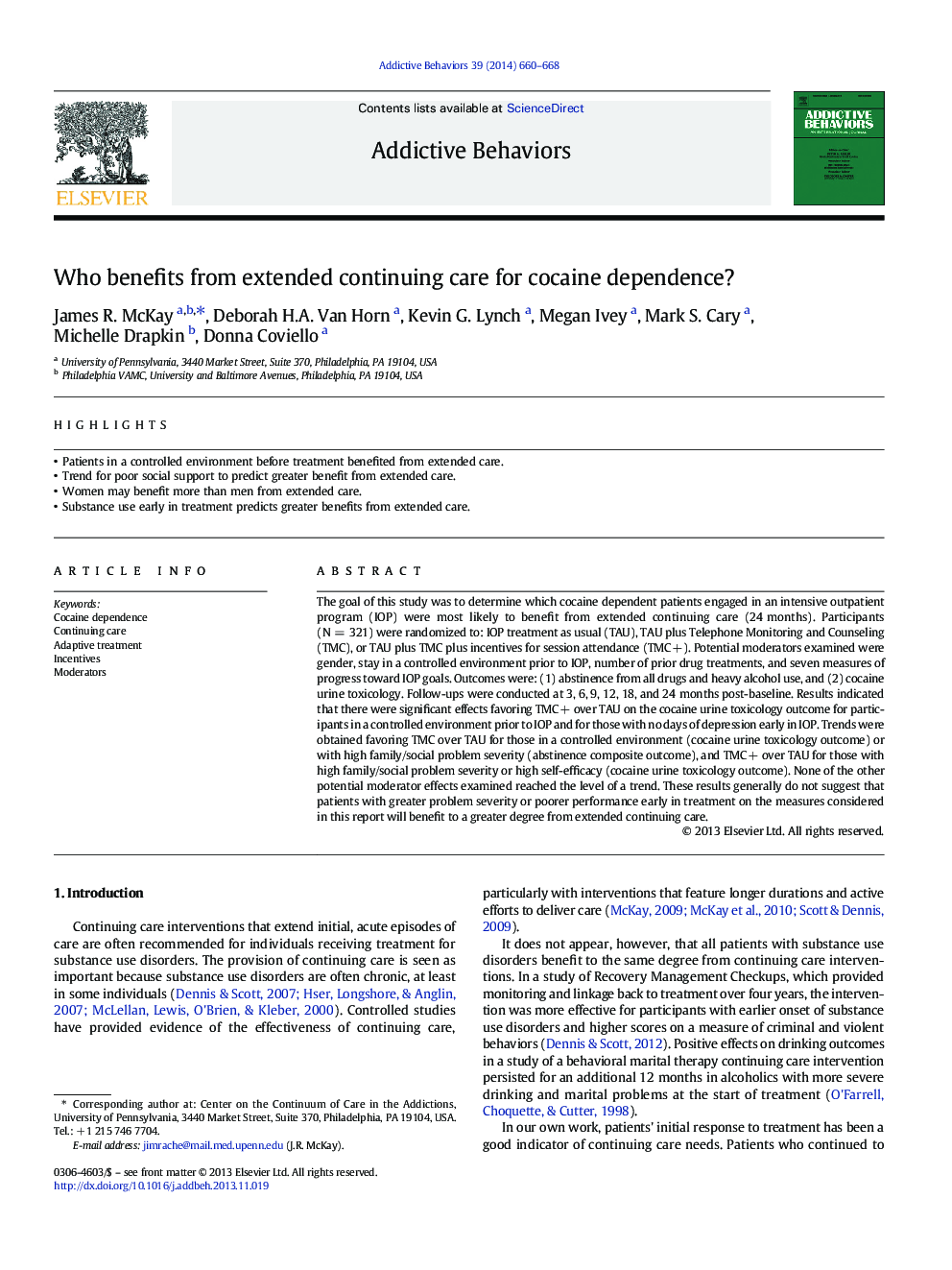| کد مقاله | کد نشریه | سال انتشار | مقاله انگلیسی | نسخه تمام متن |
|---|---|---|---|---|
| 10443210 | 915341 | 2014 | 9 صفحه PDF | دانلود رایگان |
عنوان انگلیسی مقاله ISI
Who benefits from extended continuing care for cocaine dependence?
ترجمه فارسی عنوان
چه کسی از ادامه مراقبتهای طولانی مدت برای وابستگی کوکائین بهره مند است؟
دانلود مقاله + سفارش ترجمه
دانلود مقاله ISI انگلیسی
رایگان برای ایرانیان
کلمات کلیدی
وابستگی کوکائین، مراقبت در ادامه، درمان انعطاف پذیر، انگیزه، مدیران،
موضوعات مرتبط
علوم زیستی و بیوفناوری
علم عصب شناسی
علوم اعصاب رفتاری
چکیده انگلیسی
The goal of this study was to determine which cocaine dependent patients engaged in an intensive outpatient program (IOP) were most likely to benefit from extended continuing care (24Â months). Participants (NÂ =Â 321) were randomized to: IOP treatment as usual (TAU), TAU plus Telephone Monitoring and Counseling (TMC), or TAU plus TMC plus incentives for session attendance (TMCÂ +). Potential moderators examined were gender, stay in a controlled environment prior to IOP, number of prior drug treatments, and seven measures of progress toward IOP goals. Outcomes were: (1) abstinence from all drugs and heavy alcohol use, and (2) cocaine urine toxicology. Follow-ups were conducted at 3, 6, 9, 12, 18, and 24Â months post-baseline. Results indicated that there were significant effects favoring TMCÂ + over TAU on the cocaine urine toxicology outcome for participants in a controlled environment prior to IOP and for those with no days of depression early in IOP. Trends were obtained favoring TMC over TAU for those in a controlled environment (cocaine urine toxicology outcome) or with high family/social problem severity (abstinence composite outcome), and TMCÂ + over TAU for those with high family/social problem severity or high self-efficacy (cocaine urine toxicology outcome). None of the other potential moderator effects examined reached the level of a trend. These results generally do not suggest that patients with greater problem severity or poorer performance early in treatment on the measures considered in this report will benefit to a greater degree from extended continuing care.
ناشر
Database: Elsevier - ScienceDirect (ساینس دایرکت)
Journal: Addictive Behaviors - Volume 39, Issue 3, March 2014, Pages 660-668
Journal: Addictive Behaviors - Volume 39, Issue 3, March 2014, Pages 660-668
نویسندگان
James R. McKay, Deborah H.A. Van Horn, Kevin G. Lynch, Megan Ivey, Mark S. Cary, Michelle Drapkin, Donna Coviello,
